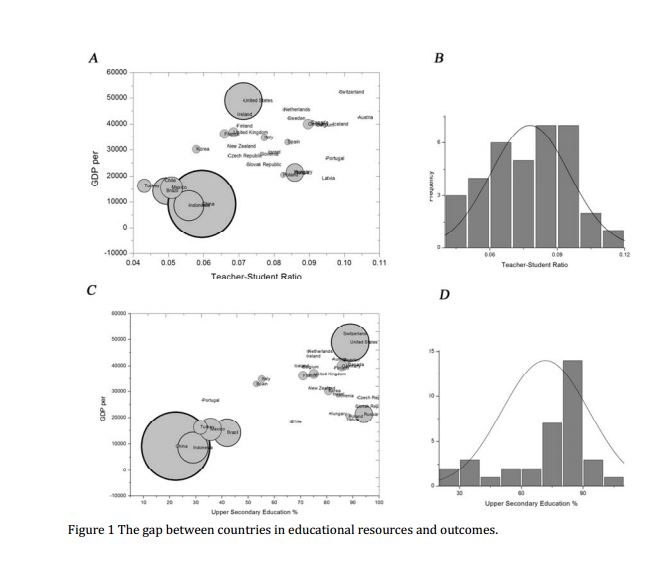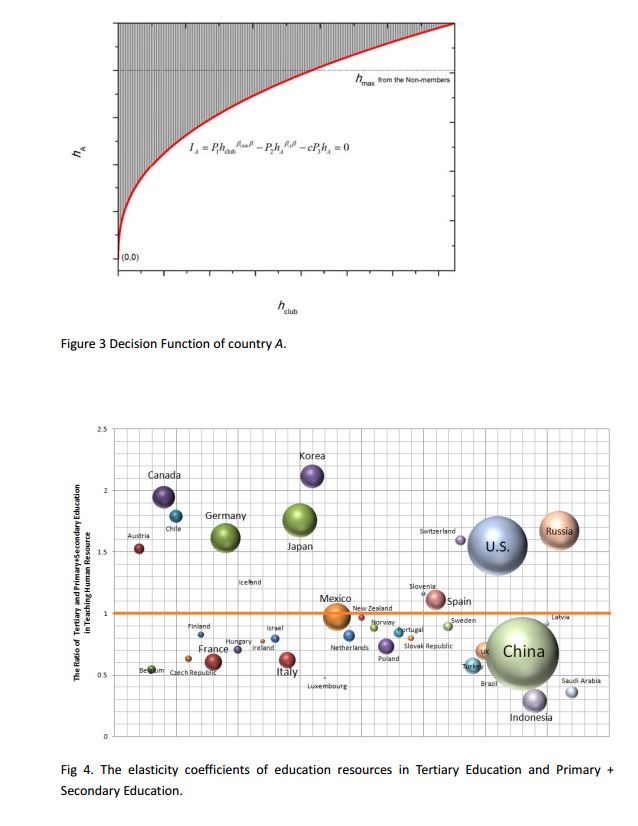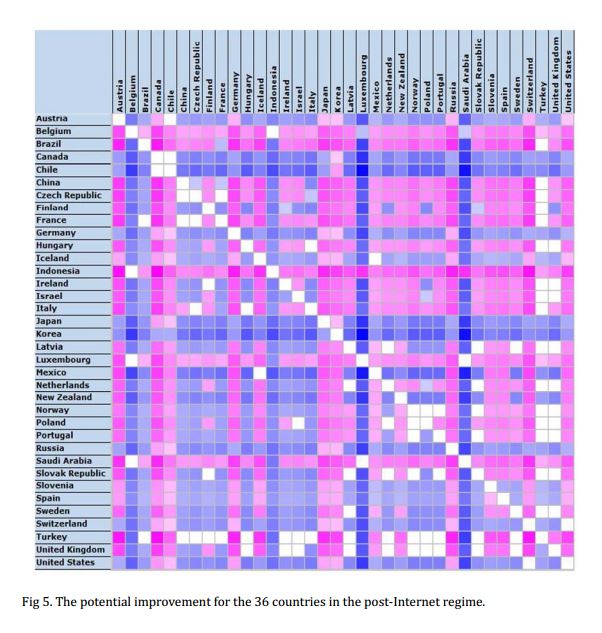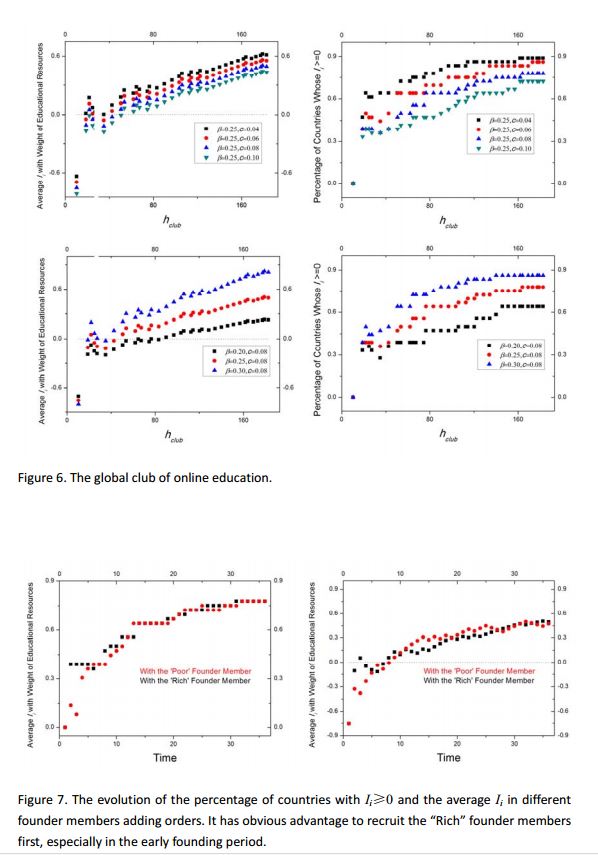[成果] 在线教育更像全球公共物品?
研究成果:Xiaomeng Li, Qinghua Chen, Fukang Fang*, Jiang Zhang. Is online education more like the global public goods? Futures, Available online 6 January 2016. doi:10.1016/j.futures.2015.10.001.
在线教育更像全球公共物品?
简介:
近些年随着技术进步,在线课程成为教育的新模式。但是较少有人从定量的角度研究在线教育对世界范围内教育平等的贡献。本文认为目前在线教育在消费中的少竞争性和排他性使其类似全球公共物品。我们通过建立教育产出模型进行分析,并指出在线教育的发展能够帮助发展中国家和发达国家提高人力资本产出,而这种增长源自在线教育作为全球公共物品的基本属性。在进一步分析这种增长的可行性和可持续性的基础上,我们建议成立在线教育组织等机构来帮助行业逃离“搭便车”的决策陷阱,这在公共物品供给中是常见的问题。本文提供了一种全新的视角来审视在线教育的意义,指出在互联网及“慕课”时代,这种基于不同比较优势的教育合作,能够帮助减少国家间教育资源的差距并在一定程度上实现协同发展。
Abstract:
Nowadays with the possibility of synchronous e-learning, online courses are becoming a new paradigm in education. But there are few studies systematically discussing the interplay between online courses and global education equality quantitatively. Here we indicate that online education is more like the global public goods with on-rival and non-excludable in consumption. We establish an educational outcome model and indicate that popularity of online education is likely to give rise to the human capital augmentation, both for developing and developed countries. And this growth stems from the characteristics of global public goods. To analyze the possibility of the potential growth, we suggest that an online education club would help countries to escape from the dominant strategies of “Free ride”, which is the common dilemma in public goods supply. So the cooperation would bring coordinated growth to countries with different advantages in educational resources. And this win-win situation offers an underlying driving force to the development of human capital and economics. This paper provides a view offering the deep understanding on reducing the gap of education outcome between countries, and get a coordinated development in the Internet or MOOCs Era. It gives more supports to the development of online education in the future.
原文链接:http://www.sciencedirect.com/science/article/pii/S0016328715001354







